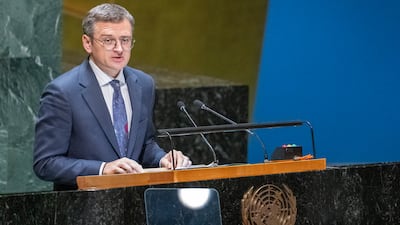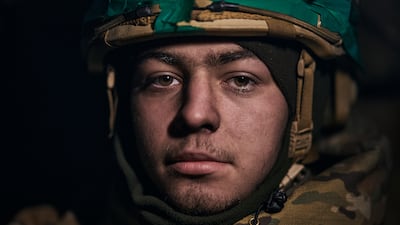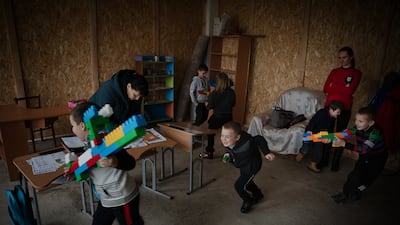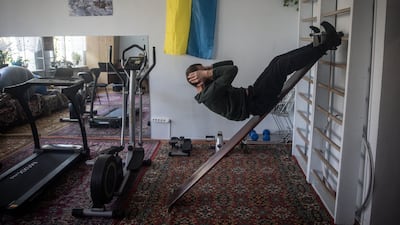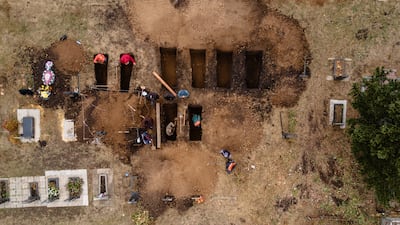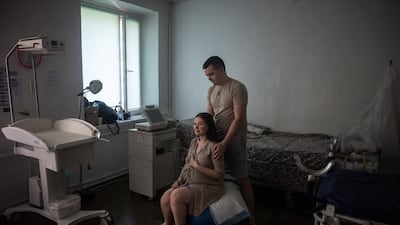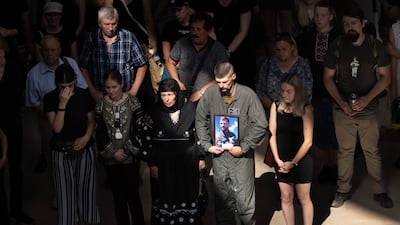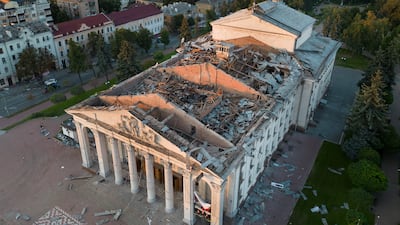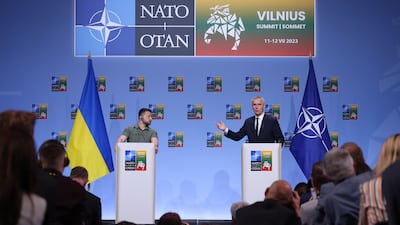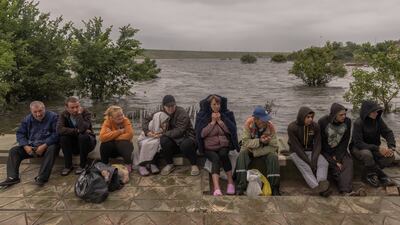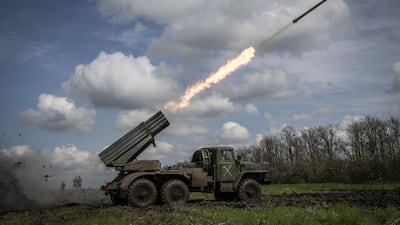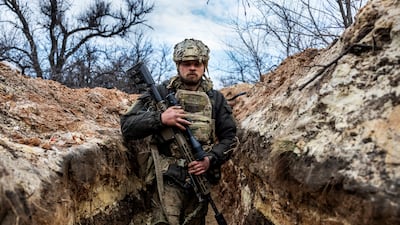Ukrainian Foreign Minister Dmytro Kuleba said on Friday that Kyiv’s proposal remains the only viable path towards achieving enduring peace between Russia and Ukraine.
“No nation in the world wants peace more than Ukraine; our country suffers the most,” Mr Kuleba told the 193 members of the UN General Assembly on the anniversary of Russia’s invasion.
“Simply putting the war on hold and hoping that the aggressor will be merciful enough to eventually choose peace is not a realistic plan,” he noted.
President Volodymyr Zelenskyy’s 10-point peace plan is “the only serious peace proposal on the table,” he added.
The Ukrainian diplomat who was seeking to rally support for Mr Zelenskyy' plan, said that, in less than a year, the number of countries and international organisations taking part in Ukraine’s peace formula meetings had risen from 15 to 82.
The plan calls for expelling Russian forces, establishing a special tribunal to prosecute Russian war crimes and building a European-Atlantic security architecture with guarantees for Ukraine.
Switzerland's Foreign Minister Ignazio Cassis called on the UN General Assembly to work for peace and not to “give in to pessimism”.
He announced that Switzerland is planning to organise a high-level Ukraine peace conference "by the summer" at Kyiv's request and "would therefore like to take this opportunity to invite all nations ... to work together towards our common goal".
The summit aims to follow on the four previous national security-level gatherings in Copenhagen, Jeddah, Malta and Davos.
Mr Kuleba said countries now saying Ukraine should negotiate with Russia and end the war are either “ill-informed” or didn't follow events after 2014, when Russia seized Crimea and backed an armed rebellion in eastern Ukraine. The two countries, he said, held approximately 200 rounds of negotiations and made 20 cease-fire agreements.
Two years of the Russia-Ukraine war – in pictures
“All of these peace efforts ended two years ago, when Russia tore apart the Minsk process and launched its full-scale invasion of my country,” Mr Kuleba said.
“Why would anyone suggest today that following the same logic will bring us to a different result?”
Russia's ambassador to the UN Vasily Nebenzya slammed Mr Zelenskyy's plan calling it "nothing other than an ultimatum to Russia and an attempt to lure as many countries as possible into endless meetings on this utopian project at any price possible."
Britain’s Foreign Secretary David Cameron said he recognised that there is a sense of fatigue with the war and a compromise might seem attractive, but he said Russian President Vladimir Putin isn't seeking compromise.
“Rather, this is a neo-imperialist bully who believes might is right,” he said. “If Putin were to eke out some kind of win, the rest of the world would suffer, too. What starts in Ukraine would not end there."
Speaking to journalists in New York, Luxembourg’s Foreign Minister Xavier Bettel expressed concern over Ukraine's diminishing strength in comparison to Russia, emphasising that without a shift in the balance of power, Russia is unlikely to engage in peace negotiations.
If Ukraine is abandoned, "we don't know who will be next," warned Mr Bettel.
He urged the international community to bolster support for Ukraine, highlighting the significance of Mr Zelenskyy's peace proposal as a viable solution.
“We have a peace plan by Zelenskyy which shows that Ukraine has a solution without [it] being humiliated. And the support for Ukraine is a support also for the negotiations.”
